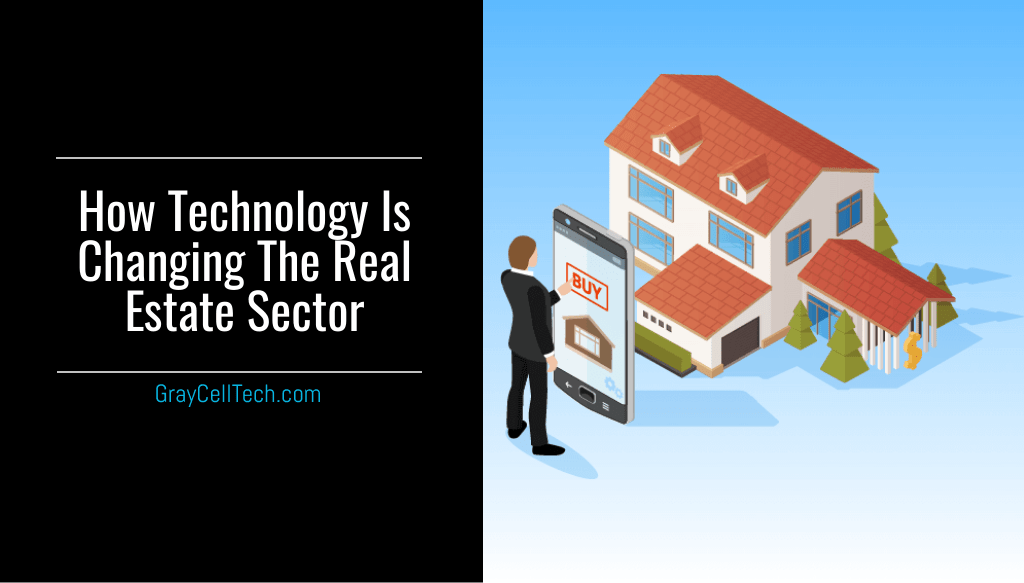It’s plain to see that technology has virtually changed (and is still changing) how every industry in the world works. Real estate is no different — people in the sector have adapted to the times, and it’s not just, so they’re able to sell home fast.
From using Google for house hunting to transacting with Bitcoin, let’s take a look at the ways that technology molded the real estate game as 2019 draws to a close.
1. Importance of the Internet
Thanks to the internet, much has changed in the home buying and selling process. Search engines, as well as real estate apps, help save time on property hunting by giving buyers a way to quickly narrow down their search and make price comparisons.
For real estate sellers, the internet has offered a more cost-efficient way to market their company, advertise their listings, and connect with a much wider audience.
Interesting Facts:
• More than 40% of buyers first do an online search for properties before going to a real estate agent.
• More than 90% of real estate companies have websites that commonly feature property listings, agent information, reviews, tips, and mortgage calculators.
• Social media platforms, followed by listing service websites, are considered the best source of good quality leads by real estate agencies.
2. The Rise of Mobile Devices

Recent studies have shown that mobile users make up more than half of the total online traffic worldwide.
It’s no surprise that more than 70% of those who searched for properties online did so through their mobile phones or tablets. Around 20% of those who used mobiles also found their real estate agent through them.
There are real estate mobile apps that allow you to search for active listings and auctions, compare prices, estimate your home’s value over time, or just learn about real estate.
3. Using Software to Increase Efficiency
Real estate management software helps real estate businesses streamline their workflow by assisting with a wide array of tasks.
These types of real estate software are the most common among real estate firms:
Real Estate Management Software
Common features:
• Logging interactions on communication channels
• Sending customized email marketing campaigns
• Handling clients’ contact and sales information
• Keep a database for lead generation efforts
Real Estate CRM Software
Common features:
• Assist with bookkeeping
• Support online payment transactions
• Manage property and tenant information
• Tracking investments and investors
• Manage important documents
4. Smart Home Technology
Smart home technology makes living more convenient while attracting more buyers. But you also have to choose the right kinds of smart home upgrades like:
• Climate control systems with smart thermostats
• Smart security system and locks
• Smart lighting system
• Automated window system
• Smart appliances
• Smartphone integration
Smart home technology isn’t usually the main draw when selling houses. That doesn’t stop it from being a great selling point though. People who own smart devices are more likely to buy a home that already has smart technology.
5. Drones and Real Estate Photography

Though drones are more popular with adventurous folks, they’re also useful for real estate agents. Home listings that include aerial shots of the property sell much faster than those that don’t. They offer a bigger view of the surroundings and save time on photography.
Buyers are also more likely to choose real estate agents with videos that feature drone shots.
6. Virtual Reality: Not Just for Gaming
Virtual reality is often associated with video games, but the technology is also being adopted by the real estate sector because of the benefits that it offers, which include:
Saving Time
The buyer and the seller no longer need to travel to the house to inspect it. Instead, the seller can offer a VR tour of the place.
Reach More Markets
VR can be used to advertise properties to international buyers so that they can view the homes before buying them from overseas.
7. Cryptocurrencies as an Alternative Payment Method
Complicated but potentially lucrative, Bitcoin and other cryptocurrencies are slowly being adopted by the real estate sector. This is especially with the growth of BitPay, which is basically the Bitcoin equivalent of PayPal.
Cryptocurrency has become an accepted payment option for some sellers, especially for properties valued in the millions. One advantage it has is that they can make much more than originally expected. In one instance, one seller in 2017 got $1.3 million from a $4 million sale after bitcoin prices rose from $750 to $1000. That’s a 25% increase!
8. Big Data
Big data utilize large amounts of data by using outside intelligence and can help the real estate persons in decision making. It extracts different data points to develop an efficient business approach and reduces risks for consumers. It gives better operational efficiency but that depends on how the company is using its data.
Big data can take the commercial real estate market completely to a new level with real estate website development. GrayCell Technologies has proven expertise in developing the ideal real estate website solutions with big data software considering all the important factors for future success. Some benefits that these solutions provide are as follows:
Time Reductions
It helps to find an appropriate building with indicated parameters for customers and real estate agents as well as give quick & accurate appraisals to the buyers i.e. how profitable is the building to them. On the whole, modern big data tools increase productivity by saving time as providing faster speed while handling a high volume of data.
Transparent Data Democratization
Real estate companies can implement transparent data democratization with big data. It allows even the non-specialist (end users) to access real-time and authentic information efficiently without any external help.
Advanced Filters
Advanced filters allow the users to find the properties and all relevant information region-wise. It handles the processing of voluminous data easily and efficiently.
Personalized Advertisement and Marketing
With the help of big data software in advertising and marketing, the site visitors get displayed the data based on various grounds like site visitors, age, the language they speak, country and region they live, type of apartments, and many more. In short, it follows a methodology that the maximum site visitors get registered and not left without setting an appointment.
Conclusion
Technology has been a great help in improving efficiency in the real estate sector. We’ll definitely be seeing automated systems, VR tech, and cryptocurrencies being embraced by more realtors in the coming years.
But let’s not forget the human element. At the end of the day, real estate is a business where it’s important to build trust between buyers and sellers.






